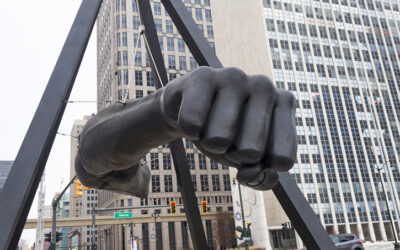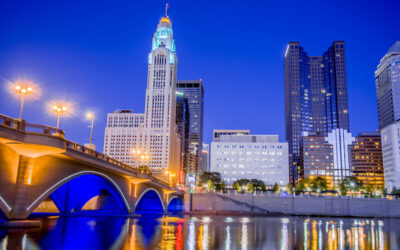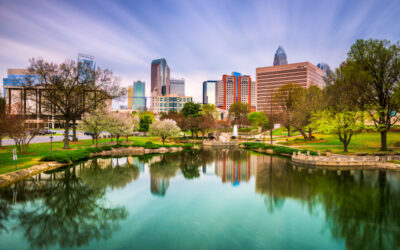Considering a move to Portland? Certain questions tend to pop-up over and over again from newcomers. So says the data from Google searches, anyway.
We’ve compiled answers to some of the most frequent questions people ask about Portland so you don’t have to go scouring the web for yourself.
Why is Portland weird?
Weirdness is a badge of honor here. And, really, we’re weird because we can be.
Historically, Portland is one of the more affordable major cities in the U.S. and became a magnet for people seeking an alternative lifestyle that could be supported on barista wages. If you were grew up in a small town where being a tattooed musician was frowned upon, you moved to Portland where you could work at a vinyl record store and have enough leisure time to form a band and still pay the rent.
The “Keep Portland Weird” campaign, modeled on one in Austin, Texas, is an attempt to hang on to this aspect of Portland’s identity despite rising housing prices and encroachment of homogeneous consumer culture.
Why is Portland called Rip City?
This one is all about basketball.
Sometimes, when you’re really excited, strange things just pop out of your mouth. What’s what happened to sports announcer, Bill Schonely back in 1970 as he watched Trailblazer’s guard Jim Barnett attempt an incredible shot in a game against the Los Angeles Lakers. Barnett sunk the shot and Schonely cried out “Rip City! All right!” Even he doesn’t know why. But, for some reason, the name stuck, even though it really doesn’t make any sense. But it’s definitely meant affectionately among Blazer’s fans. Sport Illustrated told the whole story in 2015.
Why does Portland hate Felton?
Since we’re on the topic of basketball, let’s address this common question.
The answer is simple: back in 2012, Raymond Felton was a Trailblazer for a few months and he totally sucked. He showed up to training overweight, played so badly he had to be benched, and helped us miss being in the playoffs for the first time in four years.
Why is Portland called PDX?
PDX is the official code three letter code of Portland International airport.
The “PD” is short for Portland. As for the “X”, legend has it that when the code system was developed, many airports used the existing weather station codes and just added an “X” on the end. PDX became shorthand for Portland, Oregon. Some say it helps differentiate it from all the other Portlands, particularly, Portland, Maine. Also, we’re kind of obsessed with our own airport. It’s really nice and wins awards and stuff.
Why does Portland rain so much?
Because we’re in a rainforest, silly!
Portland is in the Pacific Coastal Temperate Rainforest of North America, which stretches from Alaska down to Northern California. Basically, we’re located under a jet stream, which means we get more than our fair share of low pressure systems that dump lots of heavy rain during autumn, winter and spring. And our topography traps those clouds. We get about 36 inches of rain per year, mostly crammed into the winter months. Thankfully, we get some stunningly beautiful scenery as compensation.
Why does Portland pump gas?
I tried pumping my own gas in Portland today. This gentleman stood rather menacingly between me and the pump. “That’s against the law,” he asserted.
So here he is, pumping my gas for me. Should I have tipped him?? 😂😂#utpol #orpol pic.twitter.com/jUHp2Umxt4
— Connor Boyack 📚 (@cboyack) January 8, 2018
What Googlers are actually asking with this questions is: why can’t you pump your own gas in Portland?
Oregon has a unique law that does not allow customers to pump their own fuel. New Jersey is the only other state that prohibits this. The true answer is that we can’t because that’s the way it’s been for a long time and people don’t like change. The bureaucratic answer is about 60,000 words long and includes reasons like pumping your own gas is dangerous because gasoline is flammable and making people pay extra for full service is discriminatory because it largely impacts disabled and older people.
Why does Portland have a homeless problem?
Thirty years ago, @jeffgKOIN spent time on the streets with the homeless in Portland.
In a special report, Jeff returned to the streets to listen to and learn from the people who are currently living there.
The "Unsheltered Truth" starts tonight at 5.https://t.co/AP8wtP3CHH pic.twitter.com/h99tx2Zpks
— KOIN News (@KOINNews) April 30, 2018
Oof. This is a big question.
For starters, in the late 1970s the government made some pretty big cuts to affordable housing programs during a recession and then President Reagan came in and slashed those funds even more. Add to that a labor force that’s traditionally been made up of up lots of itinerant workers. Add to that a good chunk of people with mental health and addictions issues that can’t afford treatment. Add to that a few recessions that forced people living on the edge into homelessness.
Local advocate Paul Boden gives a pretty thorough rundown of how we ended up in the terrible situation and how we need to address the fundamental lack of housing assistance for poor people in this piece at Street Roots, a publication that addresses homelessness and poverty.


